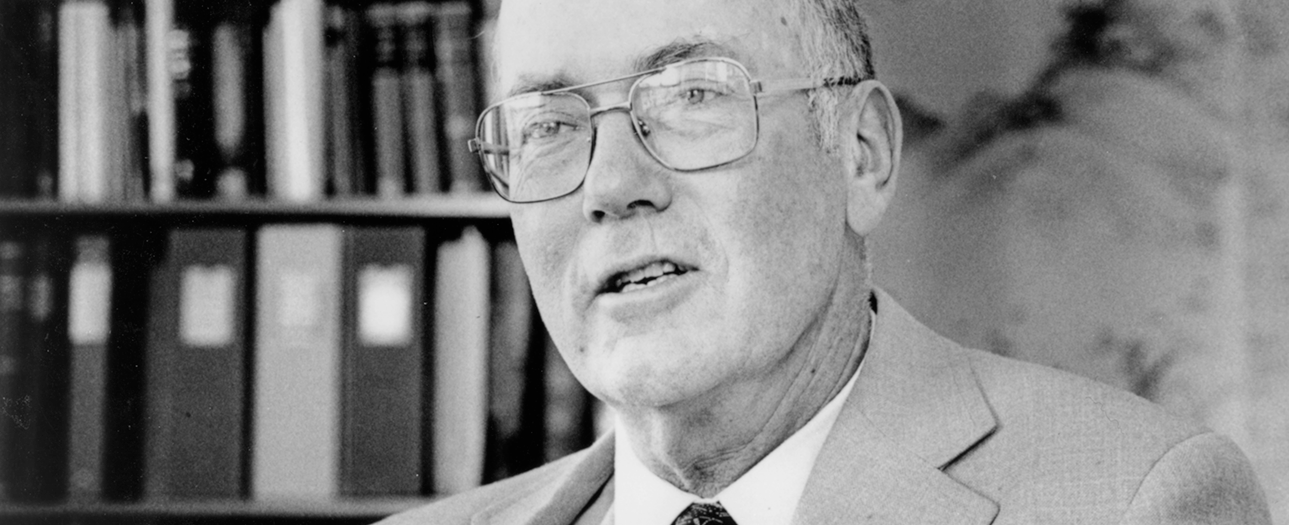Welcome to the Townes Laser Institute
The Townes Laser Institute was dedicated in 2007 in the presence of, and honoring Charles Townes, 1964 Nobel Laureate in Physics and the inventor of the concept of the laser.
Associated with CREOL, the College of Optics & Photonics and the Florida Photonics Center of Excellence (FPCE) it is funded by the State of Florida to develop the next generation of laser light engines for applications in medicine, advanced manufacturing and defense applications. Some $4.5M was allocated in 2006 to the Townes Laser Institute for major facilities, and in addition, the President and Provost of UCF allocated five new faculty positions to support the Institute. This investment will complement existing strengths in laser development and laser-based technologies at UCF, in ultra-fast laser technologies, laser materials processing, novel optics for high power lasers, fiber laser development, laser-based sensing, laser-plasma EUV sources, and other related topics.
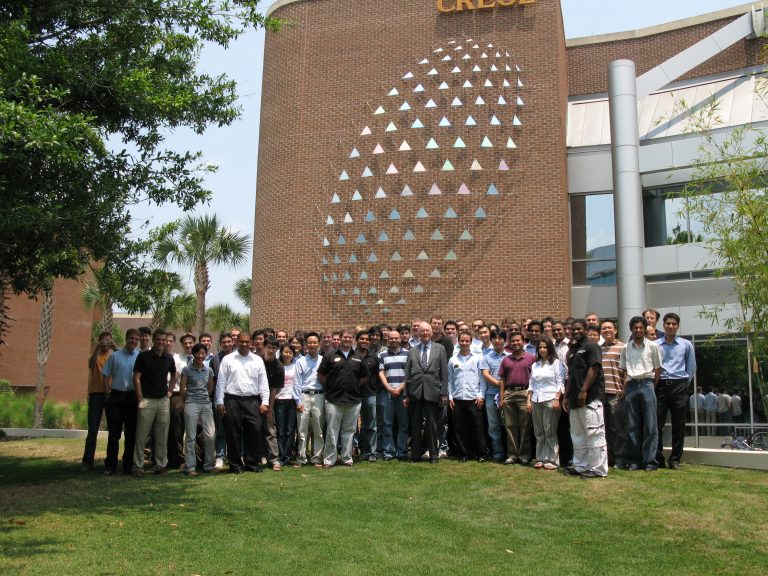
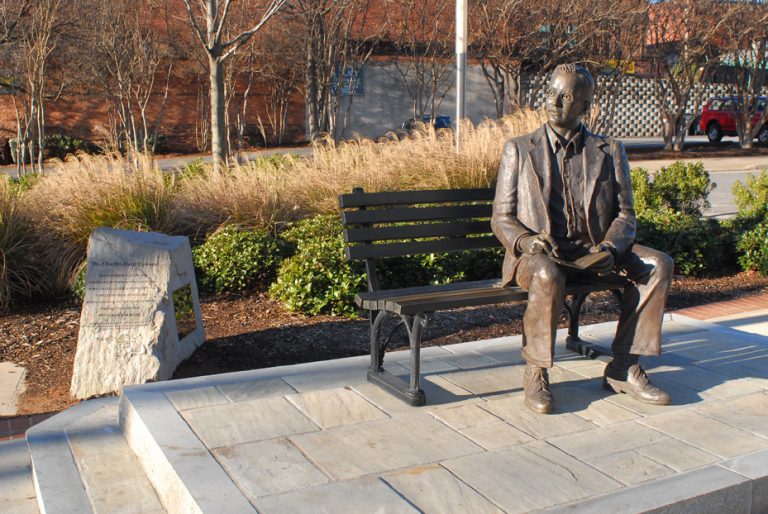
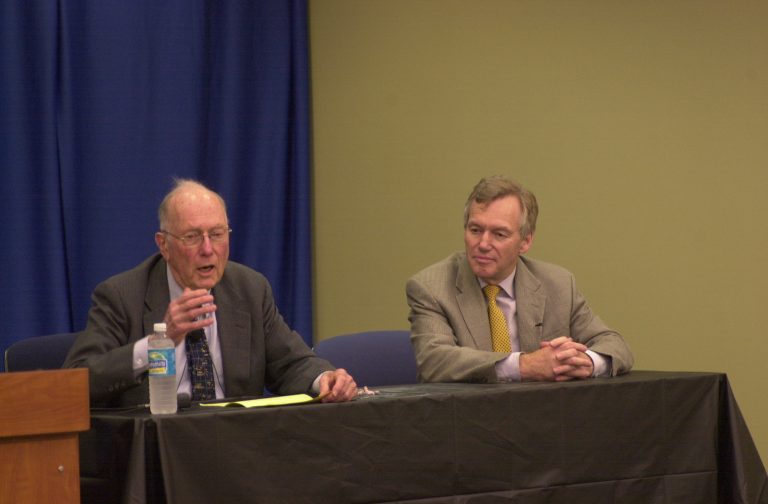
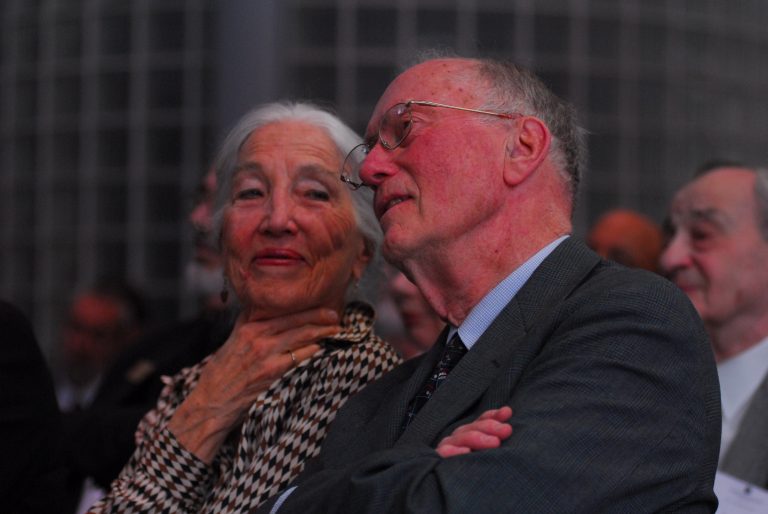
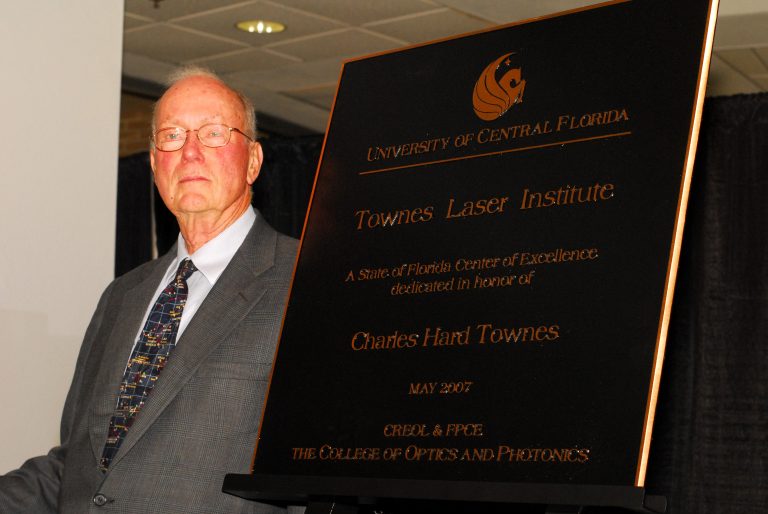
Charles Hard Townes
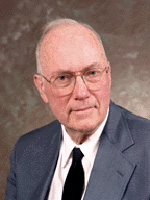
Charles Hard Townes was born in Greenville, South Carolina, on July 28, 1915, the son of Henry Keith Townes, an attorney, and Ellen (Hard) Townes. He attended the Greenville public schools and then Furman University in Greenville, where he completed the requirements for the Bachelor of Science degree in Physics and the Bachelor of Arts degree in Modern Languages, graduating summa cum laude in 1935, at the age of 19. Physics had fascinated him since his first course in the subject during his sophomore year in college because of its “beautifully logical structure”. He was also interested in natural history while at Furman, serving as curator of the museum, and working during the summers as collector for Furman’s biology camp. In addition, he was busy with other activities, including the swimming team, the college newspaper and the football band.
Townes completed work for the Master of Arts degree in Physics at Duke University in 1936, and then entered graduate school at the California Institute of Technology, where he received the Ph.D. degree in 1939 with a thesis on isotope separation and nuclear spins.
A member of the technical staff of Bell Telephone Laboratories from 1933 to 1947, Dr. Townes worked extensively during World War II in designing radar bombing systems and has a number of patents in related technology. From this he turned his attention to applying the microwave technique of wartime radar research to spectroscopy, which he foresaw as providing a powerful new tool for the study of the structure of atoms and molecules and as a potential new basis for controlling electromagnetic waves.
At Columbia University, where he was appointed to the faculty in 1948, he continued research in microwave physics, particularly studying the interactions between microwaves and molecules, and using microwave spectra for the study of the structure of molecules, atoms, and nuclei. In 1951, Dr. Townes conceived the idea of the maser, and a few months later he and his associates began working on a device using ammonia gas as the active medium. In early 1954, the first amplification and generation of electromagnetic waves by stimulated emission were obtained. Dr. Townes and his students coined the word “maser” for this device, which is an acronym for microwave amplification by stimulated emission of radiation. In 1958, Dr. Townes and his brother-in-law, Dr. A.L. Schawlow, for some time a professor at Stanford University but now deceased, showed theoretically that masers could be made to operate in the optical and infrared region and proposed how this could be accomplished in particular systems. This work resulted in their joint paper on optical and infrared masers, or lasers (light amplification by stimulated emission of radiation). Other research has been in the fields of nonlinear optics, radio astronomy, and infrared astronomy. He and his assistants detected the first complex molecules in interstellar space and first measured the mass of the black hole in the center of our galaxy.
Having joined the faculty at Columbia University as Associate Professor of Physics in 1948, Townes was appointed Professor in 1950. He served as Executive Director of the Columbia Radiation Laboratory from 1950 to 1952 and was Chairman of the Physics Department from 1952 to 1955.
From 1959 to 1961, he was on leave of absence from Columbia University to serve as Vice President and Director of Research of the Institute for Defense Analyses in Washington, D.C., a nonprofit organization which advised the U.S. government and was operated by eleven universities.
In 1961, Dr. Townes was appointed Provost and Professor of Physics at the Massachusetts Institute of Technology. As Provost he shared with the President responsibility for general supervision of the educational and research programs of the Institute. In 1966, he became Institute Professor at M.I.T., and later in the same year resigned from the position of Provost in order to return to more intensive research, particularly in the fields of quantum electronics and astronomy. He was appointed University Professor at the University of California in 1967. In this position Dr. Townes is participating in teaching, research, and other activities on several campuses of the University, although he is located at the Berkeley campus.
During 1955 and 1956, Townes was a Guggenheim Fellow and a Fulbright Lecturer, first at the University of Paris and then at the University of Tokyo. He was National Lecturer for Sigma Xi and also taught during summer sessions at the University of Michigan and at the Enrico Fermi International School of Physics in Italy, serving as Director for a session in 1963 on coherent light. In the fall of 1963, he was Scott Lecture at the University of Toronto. More recently (2002-2003) he has been the Karl Schwarzschild Lecturer in Germany and the Birla Lecturer and Schroedinger Lecturer in India.
In addition to the Nobel Prize, Townes has received the Templeton Prize, for contributions to the understanding of religion, and a number of other prizes as well as 27 honorary degrees from various universities.
Dr. Townes has served on a number of scientific committees advising governmental agencies and has been active in professional societies. This includes being a member, and vice chairman, of the Science Advisory Committee to the President of the U.S., Chairman of the Advisory Committee for the first human landing on the moon, and chairman of the Defense Department’s Committee on the MX missile. He also served on the boards of General Motors and of the Perkins Elmer Corporations.
Dr. Townes died on January 27, 2015 (aged 99) in Oakland, California. See UCF News “UCF Mourns Nobel Laureate and Laser Pioneer Charles H. Townes“.
- 2010 – SPIE Gold Medal
- 2008 – Received an Honorary Doctorate of Humane Letters from the University of Redlands
- 2006 – Was Awarded, with associate Raj Reddy, the Vannevar Bush Award for Lifetime Contributions and Statesmanship to Science
- 2005 – Templeton Prize
- 2005 – Awarded the LeConte Medallion
- 2003 – Awarded the Telluride Tech Festival Award of Technology in Telluride, Colorado
- 2000 – Awarded the Lomonosov Medal by the Russian Academy of Science
- 1998 – Awarded the Henry Norris Russell Lectureship by the American Astronomical Society
- 1996 – Awarded the Frederic Ives Medal by the OSA
- 1994 – Elected Foreign Member of the Russian Academy of Sciences
- 1982 – The National Medal of Science
- 1979 – Awarded the Niels Bohr international medal awarded for contributions to the peaceful use of atomic energy
- 1964 – The Nobel Prize in Physics
- 1956 – Elected Full Member of the National Academy of Sciences
Frances Townes
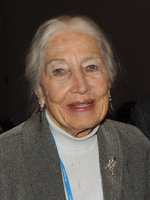
The Frances Townes Fellowship for Women was established upon the dedication of UCF’s Townes Laser Institute on May 4, 2007. It recognizes Mrs. Frances Townes life-long dedication to the education and empowerment of students in science across the world, especially those with a challenging history. Mrs. Townes was the wife of Charles Townes, the inventor of the laser.
Educated at Smith College and fluent in several languages, Mrs. Townes was an early advocate for women’s rights. She also spent over 20 years as both an activist and organizer focusing on supporting disenfranchised and homeless youth. Mrs. Townes passed away February 5, 2018, just eight days shy of her 102nd birthday.
As a tribute to her impactful work, CREOL, The College of Optics and Photonics established the Frances Townes Endowed Fellowship for Women. The Fellowship is awarded each year to a student who has demonstrated the personal strength and dedication to rise above adversity to achieve their goals. Primarily considered for graduate students, it supports tuition and living expenses throughout the student’s degree program.
Students who would like to be considered for this fellowship should send an email to CREOL Associate Dean, Dr. Patrick LiKamWa at patrick@creol.ucf.edu. The email should contain a personal letter detailing their academic career, extracurricular activities, and personal history including at least one example of overcoming adversity. Please use the Subject Line: Frances Townes Fellowship Application.
The UCF Foundation established the Frances Townes Fellowship Fund to permanently endow the Frances Townes Endowed Fellowship for Women. The Fellowship is awarded each year to a student who has demonstrated the personal strength and dedication to rise above adversity to achieve their goals. The endowed fund is invested to ensure the permanent allocation of the Fellowship. Those wishing to make a donation to this fund should contact:
Dr. Peter J. Delfyett,
Director, Townes Laser Institute
College of Optics and Photonics
delfyett@creol.ucf.edu
